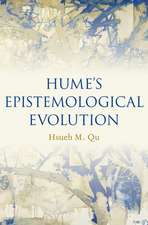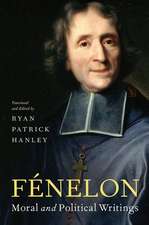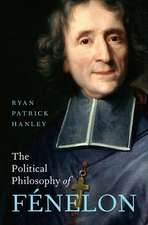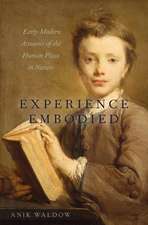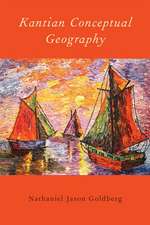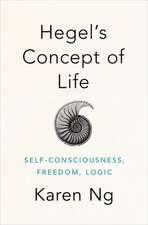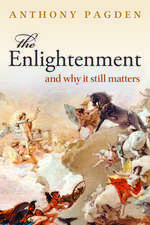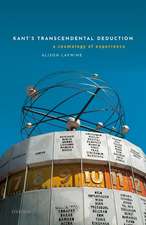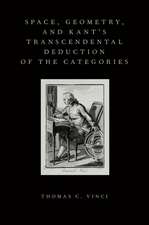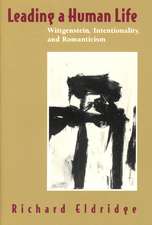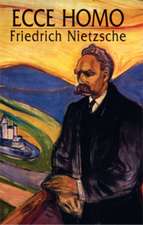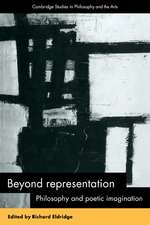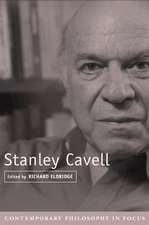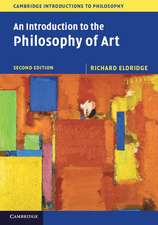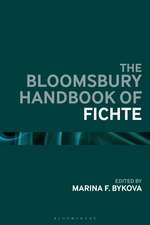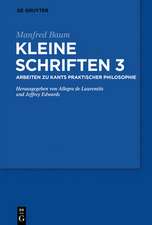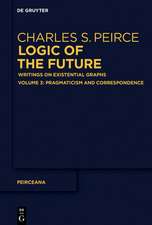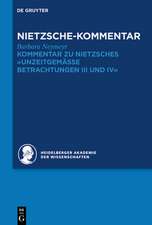Images of History: Kant, Benjamin, Freedom, and the Human Subject
Autor Richard Eldridgeen Limba Engleză Paperback – 4 ian 2018
| Toate formatele și edițiile | Preț | Express |
|---|---|---|
| Paperback (1) | 240.68 lei 31-37 zile | |
| Oxford University Press – 4 ian 2018 | 240.68 lei 31-37 zile | |
| Hardback (1) | 491.17 lei 31-37 zile | |
| Oxford University Press – 4 aug 2016 | 491.17 lei 31-37 zile |
Preț: 240.68 lei
Preț vechi: 300.80 lei
-20% Nou
Puncte Express: 361
Preț estimativ în valută:
46.06€ • 47.81$ • 38.41£
46.06€ • 47.81$ • 38.41£
Carte tipărită la comandă
Livrare economică 14-20 martie
Preluare comenzi: 021 569.72.76
Specificații
ISBN-13: 9780190847364
ISBN-10: 0190847360
Pagini: 256
Dimensiuni: 208 x 137 x 15 mm
Greutate: 0.3 kg
Editura: Oxford University Press
Colecția OUP USA
Locul publicării:New York, United States
ISBN-10: 0190847360
Pagini: 256
Dimensiuni: 208 x 137 x 15 mm
Greutate: 0.3 kg
Editura: Oxford University Press
Colecția OUP USA
Locul publicării:New York, United States
Recenzii
What is the relation between the contingency of our historical situation and the universal ambitions of our moral and political norms? Just that there must always be a relation, each forever putting the other to the test. Richard Eldridge's penetrating examination of the philosophies of history of Kant and Benjamin illuminates this simple but profound insight.
Richard Eldridge has written a sustained reflection on the question of the historical actualization of human freedom and on the character of a genuinely historical human agency...Eldridge's book is a significant contribution to the renewed interest in problems of the philosophy of history and their relevance for contemporary moral and political philosophy in the Anglo-American tradition. The approach that Eldridge presents and in particular the continuity that he finds with the Kantian project offers a distinct and important alternative reading to recent appropriations of Benjamin's work in continental philosophy.
Deftly bridging the rationalist/Continental divide, Eldridge accommodates the fact or fiction, modernist/postmodernist potential antagonisms and focuses on confounding given/constructed historical storied landscapes of Western culture. He demonstrates how the philosophical confrontations of rationalist Immanuel Kant and postmodernist Walter Benjamin contrast but are not necessarily in opposition...Despite the potentially existential malaise brought on by history, Eldridge remains optimistic as new possibilities of disclosure reveal themselves to individuals in lived historical experiences, enlivening a sense of freely chosen self-identity.
Eldridge's book not only enriches our grasp of its two principal authors and our appreciation of the problems of historical understanding. It is a refreshing departure from a strong tendency in contemporary philosophy to convey the nostrum that suitable mutually recognizing discourses and rational norm-giving are adequate to satisfy our intelligent sense of life with its complexity and its intractable problems. Eldridge writes of 'the temptation, wish, or fantasy to find an absolute ground both of assurance in linguistic performance and of the achievement of practical self-unity and reasonable self-presentation under an intelligible role' (188). His lively and penetrating study of Kant and Benjamin should help to firm up resistance to this temptation.
Eldridge's is both a brilliant scholarly study in its own right and a beacon of hope for those seeking to find their way anew in the mired field of the contemporary humanities...anyone seeking a lucid and revealing introduction to the work of Benjamin, or a compact précis of the difficulties posed by Kant's incipient philosophy of history, could not do better than to read Eldridge's incisive and enlightening book.
I found this book to be highly original and provocative in the way it creates a force field of interpretations around Kant and Benjamin's seemingly diverse pursuits. Drawing on each separately and together, Eldridge provides a compelling and convincing picture of what it means to be human and how to actualize freedom in history.
Richard Eldridge has written a sustained reflection on the question of the historical actualization of human freedom and on the character of a genuinely historical human agency...Eldridge's book is a significant contribution to the renewed interest in problems of the philosophy of history and their relevance for contemporary moral and political philosophy in the Anglo-American tradition. The approach that Eldridge presents and in particular the continuity that he finds with the Kantian project offers a distinct and important alternative reading to recent appropriations of Benjamin's work in continental philosophy.
Deftly bridging the rationalist/Continental divide, Eldridge accommodates the fact or fiction, modernist/postmodernist potential antagonisms and focuses on confounding given/constructed historical storied landscapes of Western culture. He demonstrates how the philosophical confrontations of rationalist Immanuel Kant and postmodernist Walter Benjamin contrast but are not necessarily in opposition...Despite the potentially existential malaise brought on by history, Eldridge remains optimistic as new possibilities of disclosure reveal themselves to individuals in lived historical experiences, enlivening a sense of freely chosen self-identity.
Eldridge's book not only enriches our grasp of its two principal authors and our appreciation of the problems of historical understanding. It is a refreshing departure from a strong tendency in contemporary philosophy to convey the nostrum that suitable mutually recognizing discourses and rational norm-giving are adequate to satisfy our intelligent sense of life with its complexity and its intractable problems. Eldridge writes of 'the temptation, wish, or fantasy to find an absolute ground both of assurance in linguistic performance and of the achievement of practical self-unity and reasonable self-presentation under an intelligible role' (188). His lively and penetrating study of Kant and Benjamin should help to firm up resistance to this temptation.
Eldridge's is both a brilliant scholarly study in its own right and a beacon of hope for those seeking to find their way anew in the mired field of the contemporary humanities...anyone seeking a lucid and revealing introduction to the work of Benjamin, or a compact précis of the difficulties posed by Kant's incipient philosophy of history, could not do better than to read Eldridge's incisive and enlightening book.
I found this book to be highly original and provocative in the way it creates a force field of interpretations around Kant and Benjamin's seemingly diverse pursuits. Drawing on each separately and together, Eldridge provides a compelling and convincing picture of what it means to be human and how to actualize freedom in history.
Notă biografică
Richard Eldridge is Charles and Harriett Cox McDowell Professor of Philosophy at Swarthmore College. He has held visiting appointments at Essex, Stanford, Bremen, Erfurt, Freiburg, Brooklyn, and Sydney. He is the author of 5 books and over 100 articles in aesthetics, philosophy of language, philosophy of literature, and Romanticism and Idealism. He has edited 4 volumes, including The Oxford Handbook of Philosophy and Literature, and he is the Series Editor of Oxford Studies in Philosophy and Literature.

